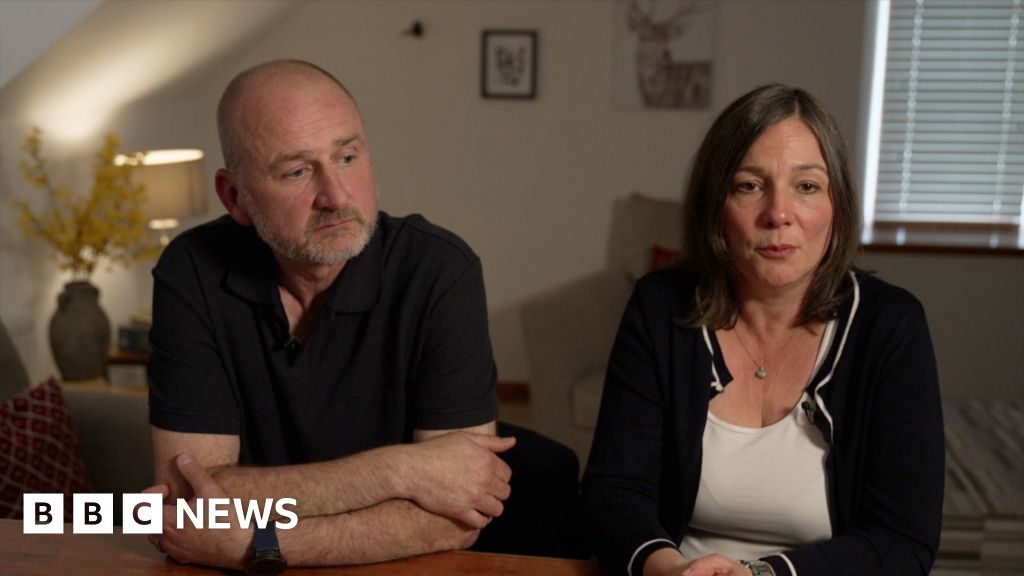
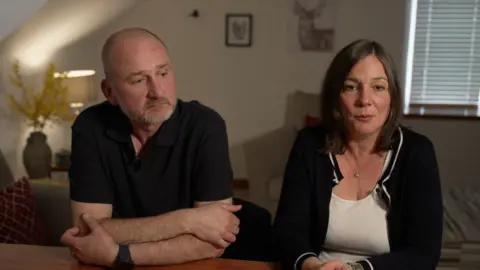 BBC
BBCThe parents of a British teenager who took his own life after becoming a victim of sextortion have made a direct appeal to criminals in Nigeria to stop “terrorising” the vulnerable.
Murray Dowey, from Dunblane, was only 16 when he ended his life last year.
It is thought he had been tricked by criminals in West Africa into sending intimate pictures of himself and then blackmailed.
Murray’s mother and father also condemned social media companies for not doing enough to protect young people, saying they have “blood on their hands.”
Sextortion often involves victims being sent a nude picture or video before being asked to send their own in return.
They then receive threats the material will be shared with family and friends unless they meet the blackmailer’s demands – pressure it is believed led Murray to take his own life.
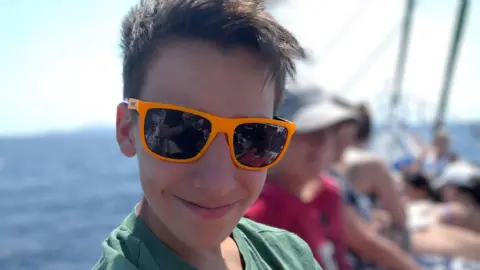
Mark and Ros Dowey have now recorded a video message regarding the “cruel” crime.
They said: “You’re abusing children. You’ve ended Murray’s life.
“How would they feel if it was their child or their little brother or their friend? I mean, it’s so cruel, and this is children, and it’s abuse”.
“You’re terrorising people, children, for some money, and I don’t think in any society that is in any way acceptable”.
Sextortion has become big business in Nigeria involving thousands of young men nicknamed “yahoo boys”.
Guides on how to get involved in the crime are openly for sale online, as a BBC News investigation revealed earlier this year.
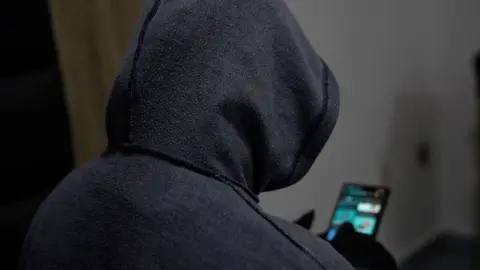
BBC News spent months communicating with a man in Nigeria actively involved in sextortion, persuading him to give an insight into this world.
He spoke to our colleagues in Lagos on condition of anonymity.
He told them: “I know that it’s bad, but I just call it survival of the fittest”
He described sextortion as like an “industry” and admitted he treats it like a game.
He added: “It depends on the fish you catch. You might throw the hook in the sea. You might catch small fish or big fish.”
However he was then played Ros and Mark’s recorded message and appeared shocked by it.
He said he was “almost crying” and felt “very bad”.
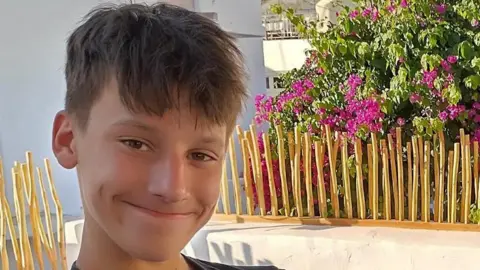 Dowey family
Dowey familyHowever Murray’s parents don’t only blame the criminals for their son’s death.
They hold tech companies responsible too.
Sextorters find their victims by targeting individuals on social media then using their list of friends and followers in their blackmail attempts.
Ros told BBC News: “I think they’ve got blood on their hands. The technologies are there for them to stop so many of these crimes.”
Mark believes Silicon Valley could do more but that they won’t as it would cost them money.
He added: “It will stop them making more billions than they’re making”.
‘No chance to intervene’
Analysis by the UK’s National Crime Agency found that all age groups and genders are being targeted, but that a large proportion of victims are boys and aged between 14 and 18.
Police believe there is underreporting of the crime because victims are too scared or embarrassed to come forward.
Mark told the BBC his son was “a really lovely kid” and that his parents had no idea anything was wrong.
He said: “He went up to his room, and he was absolutely fine. And you know, we found him dead the next morning”.
His mother Ros added: “We had no chance to intervene, to notice there was something wrong and try and help and fix it”.
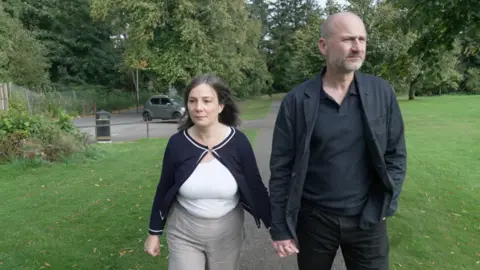
The Dowey family will be involved in a campaign launch in Edinburgh later, warning young people about the dangers of sextortion.
As well as telling them about the risks of sharing intimate images online, the campaign – which will bring together Police Scotland, Crimestoppers and the Scottish government – will offer advice on what to do and where to go for help if someone is targeted by criminals.
Mark and Ros told BBC News they had a message for any young person who finds themselves a victim of sextortion.
The couple stated: “There’s nothing that is worth taking your own life for so if something happens to you, put that phone down and go and get somebody you trust and tell them it’s happened.”
“We can’t have this happening to more children, what happened to Murray.”




